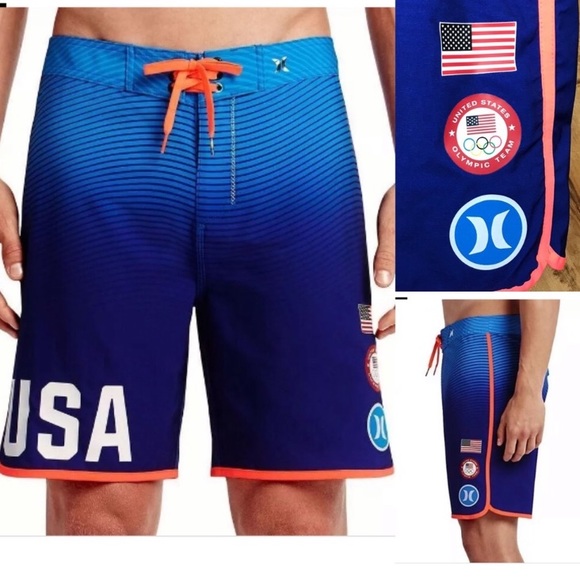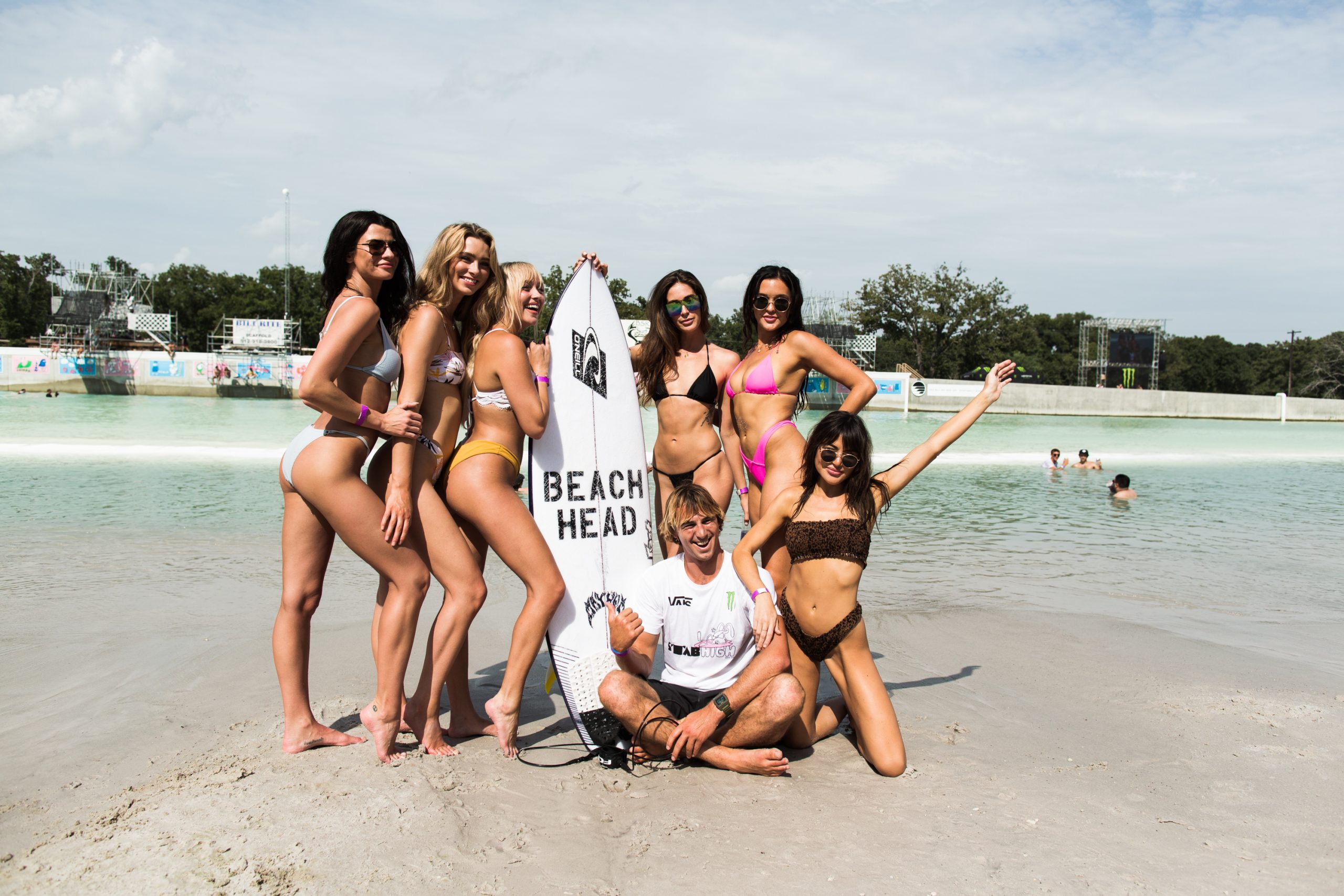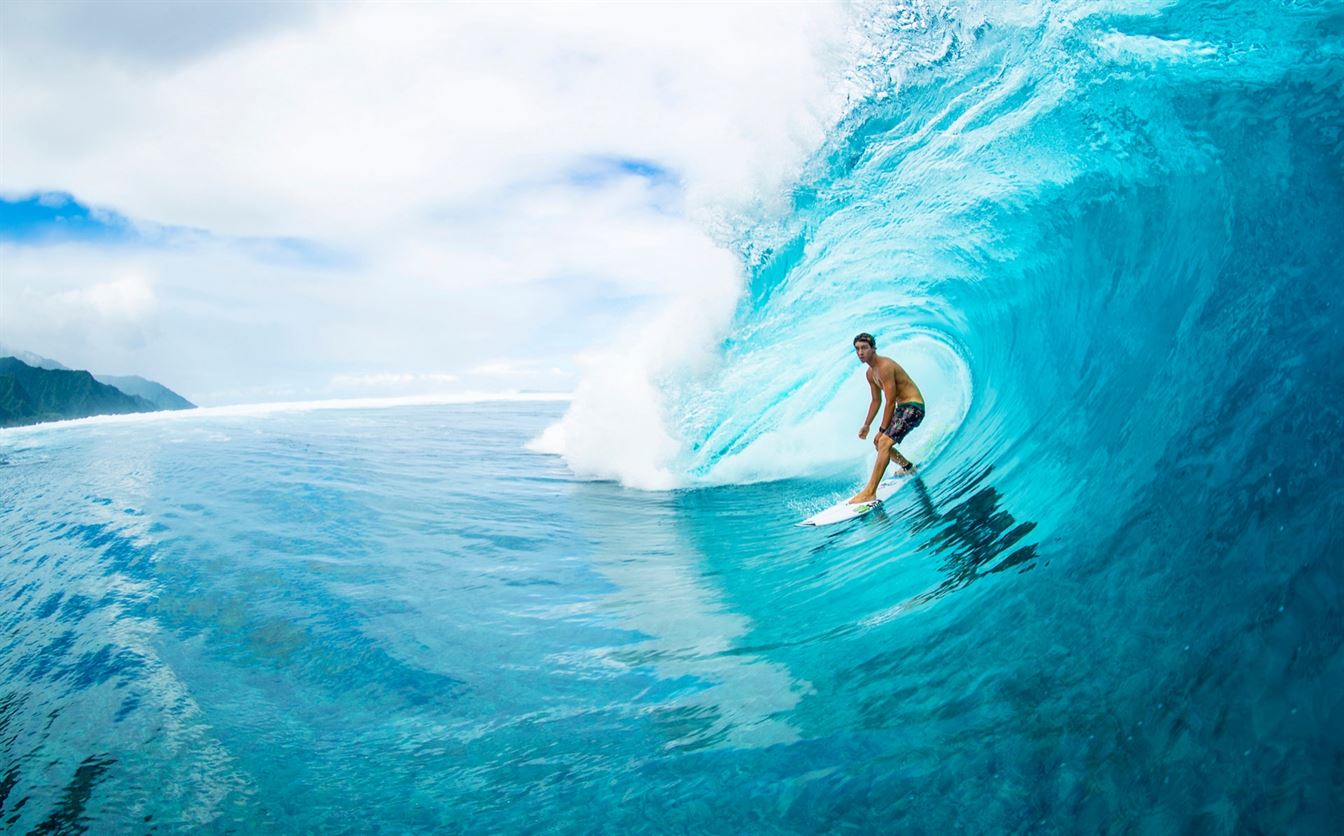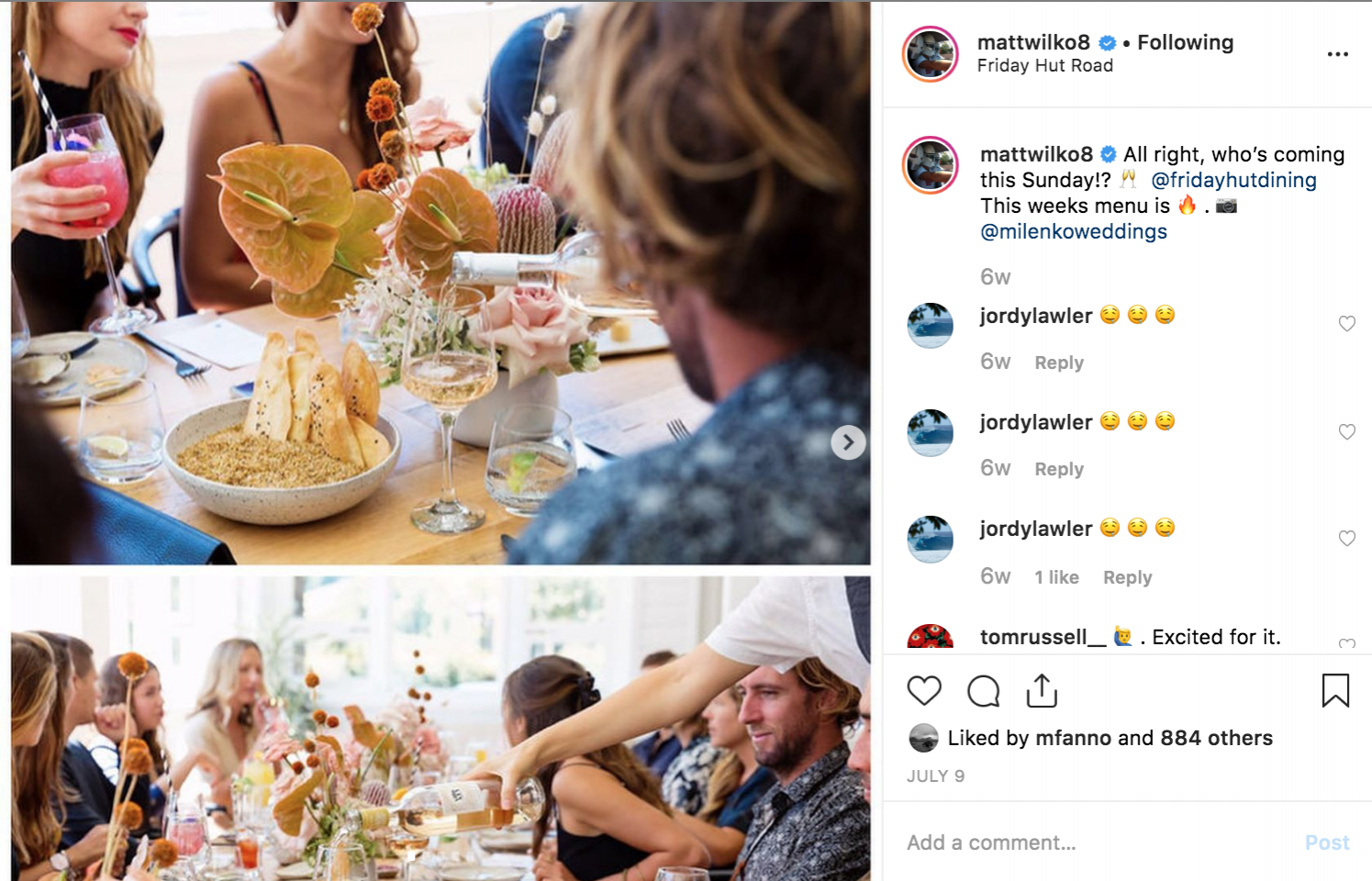Gossip Girl: The (Mostly) Olympic Edition
Who’s the highest bidder for the official boardshort of Olympic surfing? Who allegedly picked up $100k for swapping nations? The Olympic loophole sponsors love, and the murky reality of the WSL’s proposed exclusivity contract (for QSers) and more!
Honey, pour yourself an Aperol Spritz and slip into something more comfortable.
Let’s go.
And… Hurley boardshorts for all???
All this talk about Olympics 2020 has surfing’s collective ears steaming. But wherever you sit on the great Olympic divide, Tokyo is happening. And, we’re fascinated to see what kinda aquatic rainbow rolls the world’s best will be dining on in Chiba very soon.
Remember a year or so back when Hurley began crafting nationalistic trunks? You know, the ones accentuating “U.S.A”, the stars and stripes and All-American jazz?
Now, it seems they were a prototype, and we’ve learned that Hurley is holding the highest bid to be the official boardshort and bikini for surfers in 2020.

However, while Hurley may currently be the highest bidder, it’s still unclear if surfers’ trunks and bikinis will fall under the performance and equipment categories. For Olympic swimmers, their swimsuits are the only piece of performance equipment needed, so they’re able to wear whichever brand supports them, logos showing loud and proud. Following the Olympics, the belief in the swim community is the fastest swimmers wear the fastest suits: SPEEDO LZR (hello, sales!) and, in Michael Phelps’ case, rip the purest bongs: ROOR.
Whether or not boardshorts and bikinis, in surfing, will fall under the same performance category as swimming is to be determined.
If it does comes to fruition, that would mean Gabriel Medina will be wearing Hurley boardshorts instead of Rip Curl. That also means Steph Gilmore will be wearing Hurley instead of Roxy. We could go on with examples but we figure you get the gist with our two reigning world champs.
…but, there might be an Olympic loophole!
The IOC (International Olympic Committee, for those not hip to sporting initialisms) has a firm stance on no outside sponsorship representation on the podium or during Olympic Game action, unless it falls under the aforementioned performance/equipment category.
In 2014, snowboarders navigated around this by having their craft builder, primarily BURTON and DC, featured in large letters on the bottoms of their boards; and when those boards went sky high, they all went upside down in a global feat of marketing. What the snowboarders did in 2014, was include their marquee sponsor logos placed into their equipment. This is how DC found themselves adding the production of snowboards to their footwear and clothing lines prior to the 2014 Olympic Games.
According to our sources, by Olympic rule, if a board is available for retail 60 days prior to the Olympic Games it is considered equipment.
Surfers are looking to do the same in 2020 and setting their marquee sponsor logos on their foam pre-glassing. Meaning their Rip Curl, Hurley, Bong, and Volcom stickers will become one with their surfboards. For instance, the Kanoa Igarashi Sharp Eye model will have a batch made with his Quik logo glassed onto the nose and sold in stores as a special Olympic model prior to the games.
While the Olympics may do a lot for the athletes, the brands who support them get very little kickback due to strict regulations barring outside brands from getting a bite of their wide-reaching, organic marketing platform.
An X-Games gold doesn’t get you on Late Night With David Letterman; but for Sage Kotsenburg, the first ever Olympic gold in Snowboarding did.
The mighty, and often lucrative decision to swap Olympic Nations.
There’s no shame in wanting to own a medal, and Tokyo 2020 is in every competitive surfer’s crosshairs. For the fame, for the notoriety, and for the love of a country you didn’t grow up in but have some sort of lineage back to… oh, and a financial incentive doesn’t hurt, either.
We heard recently, that when Tati Weston-Webb decided to forgo her American heritage for her Brazilian one, the Brazilian government raked $100k worth of leaves into her bank account for swapping her Jack Purcells for Havaianas.
Huntington Beach Bad Boy, Kanoa Igarashi’s decision to surf for Japan may be based off his heritage and Olympic dreams (the current number world number five grew up in a household that spoke Japanese), but allegedly the Japanese Government is also cushioning his bank account — along with many high profile Japanese businesses from Cup Noodle to Dior and Visa.
The golden goofyfooter from Malibu, Frankie Harrier, has her sights on surfing for Germany.
Eithan Osborne, who already has dual citizenship in the US and France, recently became a citizen of Israel based off his grandparent’s Jewish heritage with hopes of surfing for the country in the Games.
We’ve also heard China has courted one Hawaiian CT surfer whose last name rhymes with wow, who decided it was in his best interest not to chase the red dragon.
In the coming months, as the Olympics square up, we’ll surely hear of many more surfers swapping countries for their chance to surf on the literal World Stage.

Darlin’ don’t you take our Crane away… Photo: Jimmy Wilson
The murky reality of exclusivity contracts
No one gets rich competing on the QS or filling World Championship Tour lay days with jumps because the waves are shitty (Red Bull Airborne). But, that doesn’t mean the WSL isn’t ramping their contractual obligations with both groups. According to our sources, surfers on the 2020 roster of the WQS and Red Bull Airborne will be required to sign a legal document stating they’re forbidden to compete in any non-WSL-sanctioned events.
This would mean events like the Burleigh Single Fin, the Rip Curl Cup at Padang, Red Bull Cape Fear and our very own Stab High would be potentially out.
The CTers and Big Wave contingent already signed a blood-oath to this contract. Take a moment and remember the Red Bull Cape Fear SNAFU of 2016, when Albee Layer leaked Stab a message that said, “If you surf Red Bull Cape Fear, you’re off the tour.”
Exclusivity contracts are meant to be mutually beneficial. Athletes have protection like minimum salaries, insurance, and a general level of security. Unlike the CT, the QS and Airborne events aren’t exactly paved in gold. This same thing nearly happened last year with Red Bull Airborne, but when push came to punt, the Airborne surfers resisted. Again this year, we’ve heard directly about significant pushback in surfers committing ink to paper (surfers like Noa Deane and Chippa Wilson, to name a couple).

Mahalo Griff, please keep on your shoes.
Off with their head, shoulders, knees and… nvm, keep the toes.
Reef, a company once synonymous with page two of just about any surf magazine printed from 1990 to 2008, is slashing its team. It’s nothing too significant, they’re just dropping their apparel (and those sponsored from head to toe—think Seabass and Oakley, somewhat recently) and sticking to what they do best–the cushy piece of rubber which protects the soles of your feet… and can open your beer.
Don’t fret, our friends at Reef aren’t going anywhere, this is just a return to old fashioned values. It’s worth noting, the majority of their ambassadors already have apparel sponsors. The folks that this will cut deepest are Taylor Knox, Mikala Jones, Evan Geiselman, Billy Kemper, and Mike Lay (who will leave apparel but remain on footwear, therefore suffering a pay cut).
Also, we’d heard Reef was adding a CTer to their footwear team; however, they played coy over who exactly that surfer was. Last week, we learned Griff Colapinto filled the void.

Fuck, that’s delicious.
“Stop taking photos of your food!” – a message from Matt Wilkinson’s sponsors.
Matt Wilkinson, the former man in yellow who briefly rose to meteoric heights and then surprisingly fell off tour has been maintaining a dignified lifestyle out of the jersey. Instead of fighting his way back, Wilko figured his days of battling adolescents and 30-year-old South Americans on the QS were beneath him and shifted gears entirely.
Last year, he opened a farm to table restaurant west of Byron Bay called Friday Hut Road, and ignited his personal ‘Gram with shots of the space, plated dishes and all.
Like any budding entrepreneur, he was trying to give his new business every chance of success, and so, Matt shared his new business often and enthusiastically.
Which is great, unless you’re you’re a sponsor still loading a surfer’s account with cash each month…
There are three ways to kill a social following: food, offspring, and politics.
“More surfing, less food,” says his sponsors.
Oh, the modern metrics of success!
Xoxo,
GG





Comments
Comments are a Stab Premium feature. Gotta join to talk shop.
Already a member? Sign In
Want to join? Sign Up